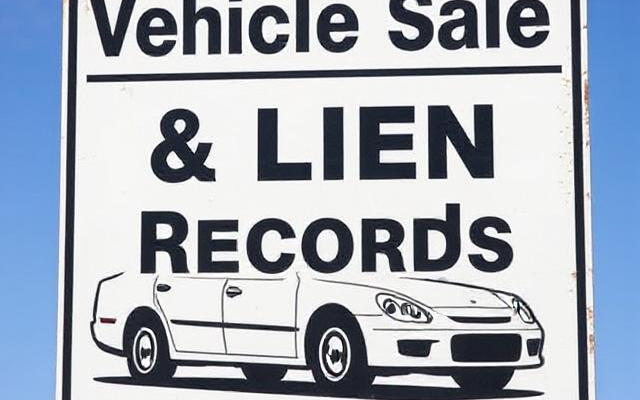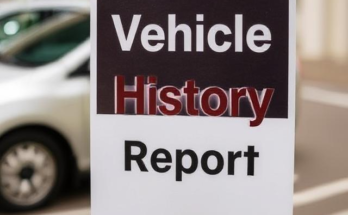Purchasing a used vehicle in the United States can be a financially savvy decision, offering significant savings over buying new. However, to ensure you’re making a wise investment, it’s crucial to delve into the vehicle’s history. Key aspects to examine include the vehicle’s sale and lien records, commercial use history, and a comprehensive problem checklist. Understanding these elements can protect you from unforeseen complications and expenses.
The Importance of Vehicle Sale & Lien Records
A vehicle’s sale and lien records provide a detailed account of its ownership history and any financial encumbrances. Reviewing these records is essential for several reasons:
-
Identifying Outstanding Liens: A lien indicates that a lender has a legal claim on the vehicle due to an unpaid loan. If you purchase a car with an active lien, you may become responsible for the remaining debt, or worse, risk having the vehicle repossessed. Ensuring all liens are resolved before purchase is paramount.
-
Verifying Ownership Transfers: Frequent changes in ownership can be a red flag, potentially indicating underlying issues with the vehicle. A stable ownership history suggests that previous owners were satisfied with the car’s performance and condition.
-
Detecting Title Brands: Sale records can reveal if the vehicle has a branded title, such as “salvage” or “rebuilt,” indicating past damage or significant repairs. Such designations can affect the car’s safety, reliability, and resale value.
Understanding Commercial Use History along with Vehicle Sale & Lien Records
Determining whether a vehicle was previously used for commercial purposes is crucial, as it can impact the car’s condition and longevity:
-
Assessing Wear and Tear: Vehicles used as taxis, rental cars, or part of a fleet often experience more rigorous use and higher mileage compared to privately owned cars. This increased usage can lead to accelerated wear on essential components.
-
Evaluating Maintenance Practices: While some commercial vehicles receive regular maintenance, others may have deferred services due to cost-saving measures. Understanding the maintenance history helps in assessing the vehicle’s current state.
-
Insurance Considerations: Some insurance companies may charge higher premiums for vehicles with a commercial use history due to the perceived increased risk.
Conducting a Comprehensive Vehicle Problem Checklist
A thorough inspection of the vehicle is vital to identify potential issues that may not be immediately apparent. Consider the following steps:
-
Exterior Examination:
-
Body Condition: Look for dents, scratches, rust, or signs of repainting, which may indicate previous accidents or exposure to harsh conditions.
-
Tire Inspection: Check for uneven tire wear, which could signal alignment issues or suspension problems.
-
-
Interior Assessment:
-
Upholstery and Controls: Ensure seats, dashboard, and other interior components are in good condition and all controls function properly.
-
Odor Detection: A musty smell could indicate water damage, while an overly perfumed interior might be masking other odors.
-
-
Under the Hood:
-
Fluid Levels and Quality: Check oil, transmission, brake, and coolant fluids for appropriate levels and cleanliness.
-
Leak Inspection: Look for signs of leaks, which could indicate serious mechanical issues.
-
-
Test Drive:
-
Performance Evaluation: Pay attention to how the car accelerates, brakes, and handles.
-
Unusual Noises: Listen for any strange sounds, such as knocking or squealing, which could point to mechanical problems.
-
For a detailed checklist, consider resources like Consumer Reports and Progressive Insurance, which offer comprehensive guidelines on inspecting used cars.
Accessing Vehicle History Details for Free
To make an informed purchase, it’s essential to access the vehicle’s history, including sale and lien records, commercial use, and any reported problems. One resource that offers comprehensive vehicle history reports is VinCheckUp. By entering the Vehicle Identification Number (VIN), you can obtain detailed information, including:
-
Accident History: Details of any reported accidents, including dates and severity.
-
Title Checks: Information on title brands such as salvage or flood damage.
-
Odometer Readings: Verification to detect potential odometer fraud.
-
Service Records: Insights into past maintenance and repairs.
-
Theft Records: Checks for active theft reports or theft recovery status.
-
Sale & Lien Records: Details on past sale and lien events, including dates, amounts, and lienholder information.
-
Commercial Use History: Indications of past use as a fleet, taxi, or rental vehicle.
Utilizing such tools empowers you with the knowledge needed to make a confident and informed purchase.
Additional Tips for Used Car Buyers
-
Verify Documentation: Ensure all vehicle documents, including the title and registration, are legitimate and match the seller’s information. Discrepancies can be a red flag for potential fraud.
-
Consult a Trusted Mechanic: Before finalizing the purchase, have a professional mechanic conduct a thorough inspection to identify any hidden issues.
-
Research Market Value: Compare the vehicle’s asking price with similar models in the market to ensure you’re getting a fair deal.
-
Be Cautious with Private Sellers: While private sales can offer good deals, they often come with fewer protections than
Learn more about buying used vehicle here.




